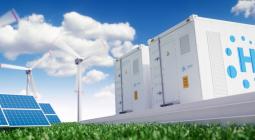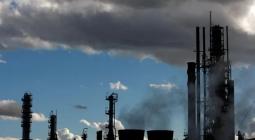Origin gets approval for 2,800MWh battery to replace Australia’s biggest coal plant
Origin Energy says it has received planning approval from the NSW government for the 2,800MWh big battery that will at least partially replace the Eraring power station it plans to close in 2025.
The Eraring big battery has planning approval for 700MW or capacity and four hours of storage, or 2,800MWh, and would be the biggest in the country if built to full capacity, although it will face a few contenders for that title.
It is one of at least two batteries – along with the state government’s planned Waratah “Super-battery” – that will replace the capacity of the Eraring coal plant, which at 2.8GW is also the biggest in the country.
Origin is fast-tracking the closure of Eraring coal to 2025 from 2032 because it no longer sees a long term business case for so-called “baseload” assets as the amount of renewables, and rooftop solar in particular, grows its share of the market.
Listen to our recent Energy Insiders podcast with Origin CEO Frank Calabria: Energy Insiders Podcast: Origin’s big shift from baseload
The Eraring battery is likely to be built with shorter duration in the initial stages, possibly one or two hours, but could be extended to four hours if the market for energy arbitrage (buying low and selling high) improves.
The Waratah battery, which is sized at 700MW and two hours of storage, is primarily focused on expanding network capacity and will act as a “shock absorber” that will allow more power to be delivered to major demand centres.
That’s why it doesn’t need so much storage. The NSW government announced on Thursday that it has received more than 30 proposals from aspiring big battery builders, and will hold a formal auction later this year.
Origin’s head of energy supply and operations, Greg Jarvis said the planning approval was a key milestone for the Eraring battery.
“Our proposed battery forms part of our plans to replace Eraring’s capacity and maintain reliable energy supply to customers, as we plan for the potential accelerated closure of the coal-fired power station in August 2025,” Jarvis said.
“Eraring Power Station is well suited to battery storage and potentially other energy infrastructure over time, as there is extensive electricity connection infrastructure already in place nearby.
“Origin will now focus on finalising vendor and constructor negotiations and transmissions connection agreements so the project can progress towards a final investment decision.
NSW is expecting at least four, if not all, of its remaining coal fired generators to close by the end of the decade. Liddell will shut next year, Eraring in 2029, and Vales Point is currently scheduled to close by 2029.
The timelines for Mt Piper and Bayswater are less certain, but most energy analysts expect them to struggle as the share of renewables leaps in coming years.
The NSW government has laid out a detailed infrastructure plan to replace the coal fired generation, creating at least five renewable energy zones, and supporting a new transmission link to South Australia, and upgrades to links to Victoria and Queensland.
The Australian Energy Market Operator this week also flagged likely “system strength” shortfalls in two regions in NSW, and three in Victoria, as a result of the early coal closures.
It is will look to battery storage, advanced inverters, and synchronous condensers as a solution to the shortfalls, which are likely to occur from 2025. Regulators are also looking at creating new markets that can create the appropriate signal for such investment
Giles Parkinson | https://reneweconomy.com.au/




